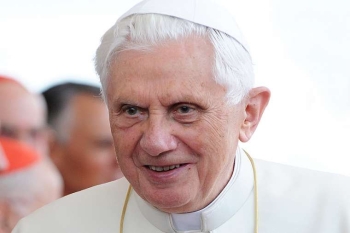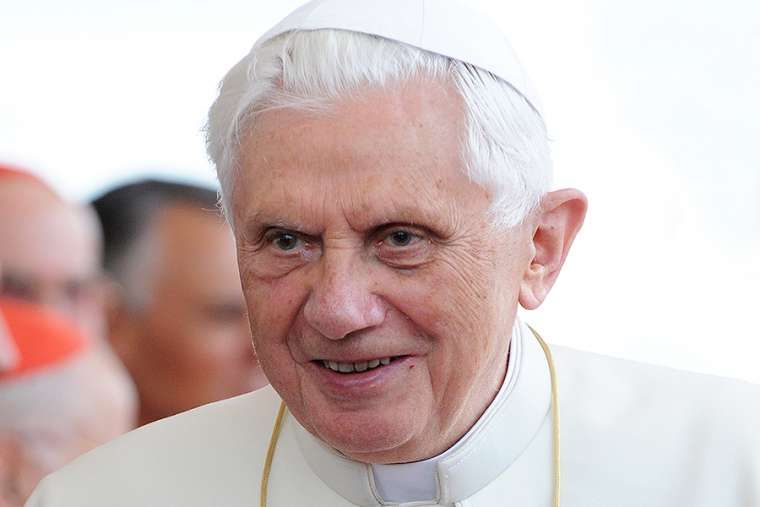
 A. J. Philip
A. J. Philip

Noor Fatima was a friend and actor. She had a small but memorable role in Richard Attenborough’s Oscar-winning film Gandhi. Those who saw the movie would remember a poor woman taking a bath in a river in Bihar. She does not have a cloth to cover her chest. Gandhi, who takes bath in the same river, realises her predicament and floats his upper garment to her. She grabs it with gratefulness writ large on her face.
Thereafter, Gandhi turns to minimalism in the use of clothes. In other words, Attenborough describes the scene as a defining moment in the life of Gandhi. Instantly, Gandhi turns into a Mahatma!
Renouncers have always captured the attention of the masses. Buddha became great when he left the palace in search of enlightenment. Jesus could have taken birth in a palace but he preferred to be born in a manger. Ram became Maryada Purushothama, when he chose 14 years of vanvas to uphold his father’s promise to his stepmother!
An entrant to this category of renouncers was Pope Emeritus Benedict XVI, who died on December 31, 2022, aged 95. When he resigned from the post of Pope in 2013, he was the first to do so in 600 years! It would be wrong to call him a quitter as he had his own reasons to vacate the throne of Peter. Allowance should be made for the fact that he had completed eight years as the head of the Catholic Church.
Many may not know that when Joseph Ratzinger was chosen as the Pope by the Collegium of Cardinals, he secured more votes than his successor-to-be Pope Francis. It is a different matter that no Cardinal would ever reveal what all happened in the closed room before white smoke is allowed to billow out through the chimney to let the world know that a new Pope was elected.
Ratzinger was part of the collegium that chose Pope John Paul II and his predecessor who did not last long. He had his own reason to quit. He was 78 when he was chosen Pope at a time when bishops retired at 75. He found that he was no longer in the pink of health, as he had a pacemaker to keep his heart functional and other ailments.
Of course, he had to answer questions like, “Did he secularise the office of Pope? Did he set a precedent?” He preferred not to answer such direct questions except to say that retirement for bishops is not a new phenomenon. “A father does not cease to be a father at any stage but a father also stops performing the role of father after some time in his life”.
He never regretted the fact that he chose to quit as it was a decision taken consciously in the light of incessant prayers. Never for a moment did he miss meeting heads of states and governments who came to meet him while he was the Pope. He was a man of prayers and solitude whose role model was Jesus Christ, who would leave his disciples and pray alone in a garden like Gethsemane or a hill like the Olive.
During the nine years that he remained Pope Emeritus, he lived the life of a hermit like Saint Benedict who lived in the fifth century, whose name he chose as the Pontiff. There was never an allegation that he interfered in the day-to-day affairs of his successor, though they lived a few hundred yards from each other.
In 2000 when I first visited the Vatican, I made an attempt to meet Cardinal Joseph Ratzinger, though without success. There was a special reason to do so. I had a huge respect for him ever since he was chosen as the Prefect of the Congregation for the Doctrine of the Faith, formerly known as the Holy Office, by Pope John Paul II. He held the office for over two decades when his was the last word on matters of faith. He was also called the Rottweiler of the Pope.
Pope Benedict had once famously said that the main problem the Catholic Church faced was not the dwindling numbers in the pew but the dwindling faith in the church. He was in his mid-thirties when the Second Vatican Council was held. Yet, he played a stellar role in the deliberations of the Council by staying behind the curtain.
Pope Benedict was a scholar of exceptional brilliance. True, there had been Popes who were scholars, from Leo the Great and Gregory the Great to Innocent III. Future historians will hail him as one of the few scholarly Popes. His output as a professor of faith is phenomenal. His three-volume work on Jesus, which he completed during his Papacy, is considered a seminal work that will act as the compass for the church when it is pulled in different directions by competing forces of tradition and modernity.
His ‘Introduction to Christianity’ will remain a primer for all those who want to know how a band of fishermen became fishers of men and spread the word of God throughout the world. Will Christianity remain the pre-eminent faith in Europe? Benedict had a ready-made answer: “The word of Gospel can disappear from continents. Indeed, we can see now that the Christian continents of the beginning, Asia Minor and North Africa, are no longer Christian. It can even disappear in places where it was dominant. But it can never remain unsaid; will never be unimportant”.
He was a man of certitude who believed in the glory of God. It is said that the Second Vatican Council brought into the church a breeze of fresh air. His encyclicals and other writing suggested that while he stood for modernity, he did not want the church to compromise on its cardinal principles.
He was not the first Pope to visit a mosque but he was certainly the first to attend a Protestant service. He believed in ecumenism but not at the cost of his Catholicism. The English historian Peter Watson called Benedict XVI one of the “last representatives of the German genius”, putting him on a par with Lessing, Kant and Beethoven. For the Peruvian winner of the Nobel Prize for Literature, Mario Vargas Llosa, he was one of the most significant intellectuals whose new and bold reflections provided answers to the moral, cultural and existential problems of our time.
He was born in a poor family in Germany. His father was a policeman, who had abiding faith in the church and its doctrines. He was the third of three siblings. The family had close connections with the church. His elder brother was a priest and his sister a nun. In fact, she was so close to him that she lived with him during the periods he held many posts, including as Pope.
His mother was also from a poor background. She could not obtain a certificate that she was of Aryan stock, mandatory for many benefits during the Third Reich. In the process, she ended up on record as the illegitimate daughter of her parents. Even after his father’s retirement from police service, the family’s financial condition was so bad that his mother had to work in a hotel as some sort of a waitress.
Did his mother support him when he chose the priestly vocation? Her stand was like Don Bosco’s mother who said, “If one day you doubt your vocation, then take off your cassock. Better a poor peasant than a bad priest”. She was happy that her sons chose to be priests but her joyfulness was reserved because she knew that things could go wrong too.
It is said that his father did not mind staying at home and looking after the house. In fact, “he was probably the first house-husband in German history”.
Benedict took pride in the fact that he was a Bavarian. His memoirs suggest that he always wanted to be in and around Munich. He never felt comfortable even when he was posted in a place like Bonn. He abhorred travel.
It was his reputation as a scholar that attracted Pope John Paul II, who called him to Rome and gave him the job that lasted for more than two decades. Whenever the Pope had any doubts about a theological issue, it was to Ratzinger that he turned. His was the last word on matters of faith.
As the Prefect of the Congregation for the Doctrine of the Faith, he had to grapple with many doctrinal issues that were even existential in nature. There can be differences of opinion on his Papacy. He could not take prompt action against those who violated celibacy or were pedophiles because he believed in the rule of law. The rules did not allow him to dismiss them from service.
In other words, he was a stickler for rules and once he was sure of facts and the rules allowed him to act, he acted with determination. Many of those who were accused of having abused children were shown the door. No Pope had dealt with such a large number of errant priests.
Just before and after his resignation as Pope, Benedict gave a series of interviews to Peter Seewald in which he answered all questions, even controversial ones, with candidness never ever seen in the head of a church. Titled ‘Last Testament In His Own Words’, the book answers all the questions that the probing journalist had to ask him. At one point, he says, “It’s not the judgement of journalists that matters but the judgement of the loving God.”
He had to face criticism, especially from Germany where he was not popular towards the latter half of his Papacy. But then Germany is one country where the church has been facing a major existential crisis. The policy of excommunication of all those who do not pay the church tax has gone against the interests of the church.
He had a great reputation as a scholar and teacher but then he also had to face complaints that he would talk about Hare Krishna and “suchlike” in his lectures. See how he defends himself: “No, no, I have never spoken about Hare Krishna, but I have dealt with the myth of the god Krishna, which demonstrates astounding parallels to the history and character of Jesus, and is of great importance for inter-religious dialogue.
“I had to lecture on the history of religion and in that context I included a big section on Hinduism. It was very helpful then that I knew Paul Hacker. I also got literature from him. In general, only the philosophical aspect of Hinduism was represented, whereas I was of the opinion that one must enter into the cultic and mythical aspects too”.
Hacker was a person who spoke eighteen languages perfectly and reached a level of perfection in Sanskrit that meant Indians came to study Sanskrit with him. Benedict benefited a lot from his association with him, though they later fell apart for ecclesiastic reasons.
Now that his funeral ended at the Vatican, how will posterity view the sensitive school boy who composed Greek hexameters and loved Mozart? The very young student who dreamt of a Christian awakening among the bombed-out streets of Munich.
Benedict XVI will be missed for his “wise speeches which could cool the mind and warm the heart, the richness of his words, the honesty of his analysis, the infinite patience in his listening, the nobility of character that he embodied like no other churchman”. There is no doubt that he will be remembered as one of the greatest Popes, not just because he resigned but because he was great in many respects.